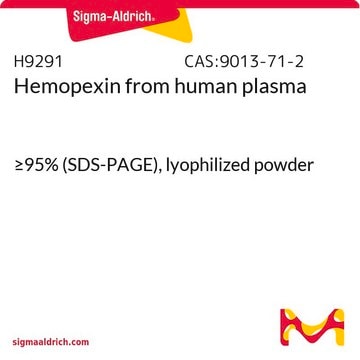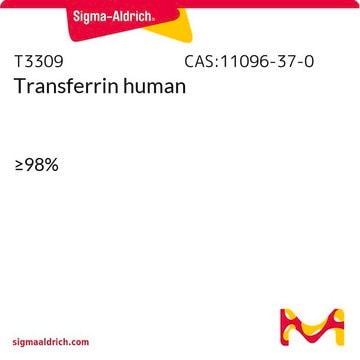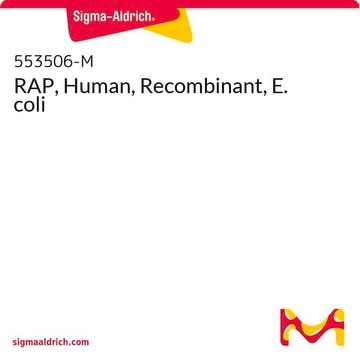M6159
α2-Macroglobulin from human plasma
BioUltra, ≥98% (SDS-PAGE)
Synonym(s):
α2-M
About This Item
Recommended Products
biological source
human plasma
Quality Level
product line
BioUltra
Assay
≥98% (SDS-PAGE)
form
lyophilized powder
mol wt
~720 kDa (four glycoprotein subunits)
composition
Protein, 15-30% biuret
technique(s)
inhibition assay: suitable
solubility
water: soluble 10 mg protein/mL, clear, colorless
UniProt accession no.
storage temp.
−20°C
Gene Information
human ... A2M(2)
Looking for similar products? Visit Product Comparison Guide
Application
Biochem/physiol Actions
Packaging
Physical form
Analysis Note
Storage Class Code
11 - Combustible Solids
WGK
WGK 3
Flash Point(F)
Not applicable
Flash Point(C)
Not applicable
Certificates of Analysis (COA)
Search for Certificates of Analysis (COA) by entering the products Lot/Batch Number. Lot and Batch Numbers can be found on a product’s label following the words ‘Lot’ or ‘Batch’.
Already Own This Product?
Find documentation for the products that you have recently purchased in the Document Library.
Customers Also Viewed
Our team of scientists has experience in all areas of research including Life Science, Material Science, Chemical Synthesis, Chromatography, Analytical and many others.
Contact Technical Service












